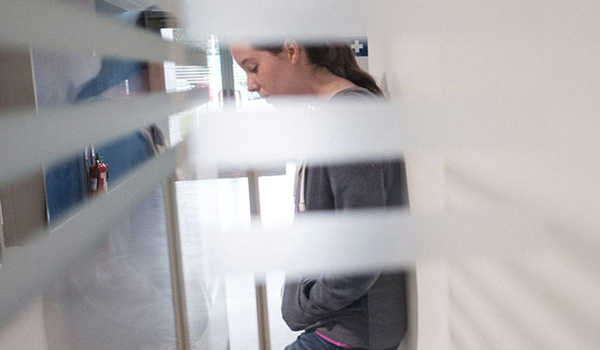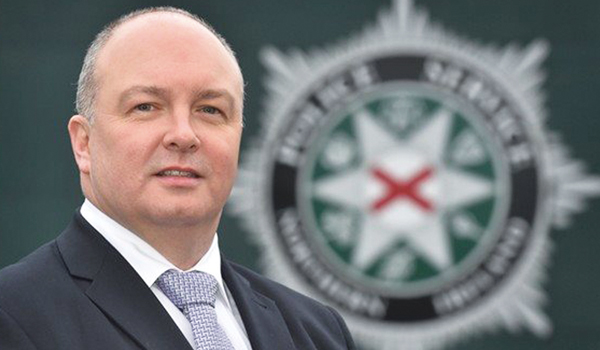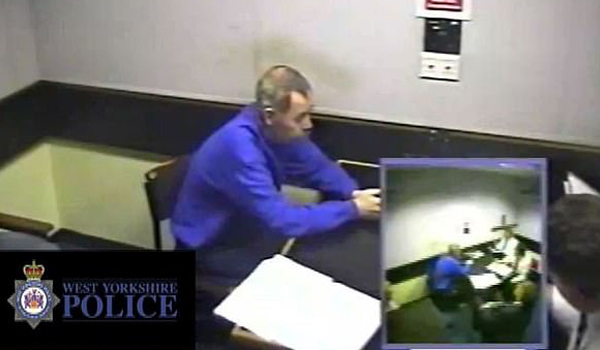Radical ‘Scandinavian-style’ reforms to youth justice system needed says Children’s Commissioner
The Children’s Commissioner for England says “radical change” is needed to prevent children becoming involved in crime and help them turn around their lives when they have spiralled out of control.
Anne Longfield warns that an “under-resourced and fragmented system” of child protection is letting down thousands of children before they ever set foot inside a police station.
In a report published today – Injustice or In Justice: Children in the Justice System – she calls for radical ‘Scandinavian-style’ reforms to youth justice system.
Ms Longfield is urging the Government to put more resource into stopping gangs from exploiting vulnerable children to help reduce the numbers of children in custody “to an absolute minimum”.
She also wants more focus on identifying children at risk of getting involved in crime and diverting them away from that path, and transforming secure care for children so that rehabilitation is at its heart.
“For too long, ruthless criminals have been able to exploit gaps in the education and child protection system to exploit and criminalise vulnerable children. Tackling the scourge of serious violence requires a radical change in how we view the youth justice system,” said Ms Longfield.
“Significant progress has been made in keeping children out of custody in the last ten years, but much more needs to be done. There are still too many children being sent to prison and still too many children who are set up to fail when they leave custody because not enough is being done to find them the right place to live or to get them the treatment or education they need on release.”
Over the past decade the number of children receiving a caution or sentence has fallen by 83 per cent and the number of children in custody has fallen by 73 per cent. However, the report questions why there are still hundreds of children ending up in courts and prisons when by comparison in 2015 there were only 13 children aged 15 to 17 in prison in the whole of Sweden, Norway, Iceland, Finland and Denmark combined.
Locking these children up is not helping to stop crime, said Ms Longfield. In England, seven in ten children released from custody reoffend within a year.
“We should look at why Scandinavian countries have so few children in custody and raise our own expectations to match them,” said Ms Longfield.
“That will mean stopping gangs from exploiting vulnerable children, identifying children at risk of getting involved in crime and diverting them away from that path, reducing the numbers of children in custody to an absolute minimum and transforming secure care for children so that rehabilitation is at its heart.
“I believe all of this is achievable if the will is there to do it.
“The number of children in custody in this country is only half the size of a secondary school. It should not be beyond us to improve our justice system so that children involved in the criminal justice system are recognised as children first. They should be held to account for their crimes but also kept safe and given more help to turn their lives around.”
More than half of children sentenced are currently, or have already been, a ‘Child in Need’, seven in ten have identified mental health needs and 85 per cent of boys in young offender institutions have previously been excluded from school. When compared with their peers, children in residential care are at least 13 times more likely to be criminalised.
The Children’s Commissioner argues in the report that at every stage of a child’s journey through the criminal justice system, opportunities are being missed to get to the root causes of offending and that the system is failing to see the child first and the ‘offender’ second, reducing the opportunity for real change.
This appears to be particularly true for black children, who are over four times more likely to be arrested than white children. Despite accounting for only 18 per cent of the general population, children from black, Asian and minority ethnic backgrounds now make up almost half (49 per cent) of the entire population of youth custody.
The report makes a number of recommendations to build on the gains of recent years and further reduce the numbers of children going into custody.
These include a significant expansion of early help services, which can identify emerging issues and prevent problems from developing. The report says this will require increased investment in mental health support, with an NHS-trained counsellor in every school, levelling up on spending on speech and language therapy around the country, and an expansion of Troubled Families-style intensive support to prevent children from reaching crisis point. A national plan should also be introduced to identify and provide support for additional needs in the Early Years.
Investment in high quality support from youth workers able to work with children at risk in their community is also required
The report also calls for reform of the ‘Alternative Provision’ sector in education to place greater focus on avoiding exclusions and which increases accountability on providers for the destinations of children excluded from mainstream settings.
Other recommendations include:
- Raising the age of criminal responsibility to 14, in line with the recommendations of the UN Committee on the Rights of the Child;
- Reforming to the court system to make it more child-friendly and address children’s health, welfare and education needs, putting more focus on wider determinants of offending rather than the symptoms;
- A joint approach by the Ministry of Justice, the Department for Education, Youth Justice Board and other partners to reduce the number of children in custody by designing evidence-based community sentences that work for children and reduce reoffending. This should be accompanied by investment in specialist placements for children remanded to local authority care when they are refused bail to their previous home, and support and intervention with children and their families for those awaiting trial;
- A national network of accommodation providers and youth organisations to provide ‘intensive support’ to children leaving custody during their transition into the community, with links that begin during their time in custody;
- Restricting restraint in youth custody settings for incidents where it would prevent harm to a child themselves or to others, with a clear plan from the Government on implementing the Separation Taskforce’s recommendations; and
- Additional funding to ensure that there is sufficient staffing, and funding for youth work agencies in custody, to allow children more time out of their cells and access to activities.
“An urgent rethink of how we treat children who require secure care is needed,” says the Children’s Commissioner’s report.
“The current system arbitrarily separates children based on the legislation they are detained under, rather than focusing on their underlying needs or how best to treat and rehabilitate them.
“There needs to be an integrated system of secure care, with enough inbuilt flexibility to respond to children’s needs as they evolve and which provides a greater degree of rehabilitation.
“There must be adequate accommodation to provide safe and supportive environments for those vulnerable children who are diverted away from custody but may also have very high levels of complex needs.”







